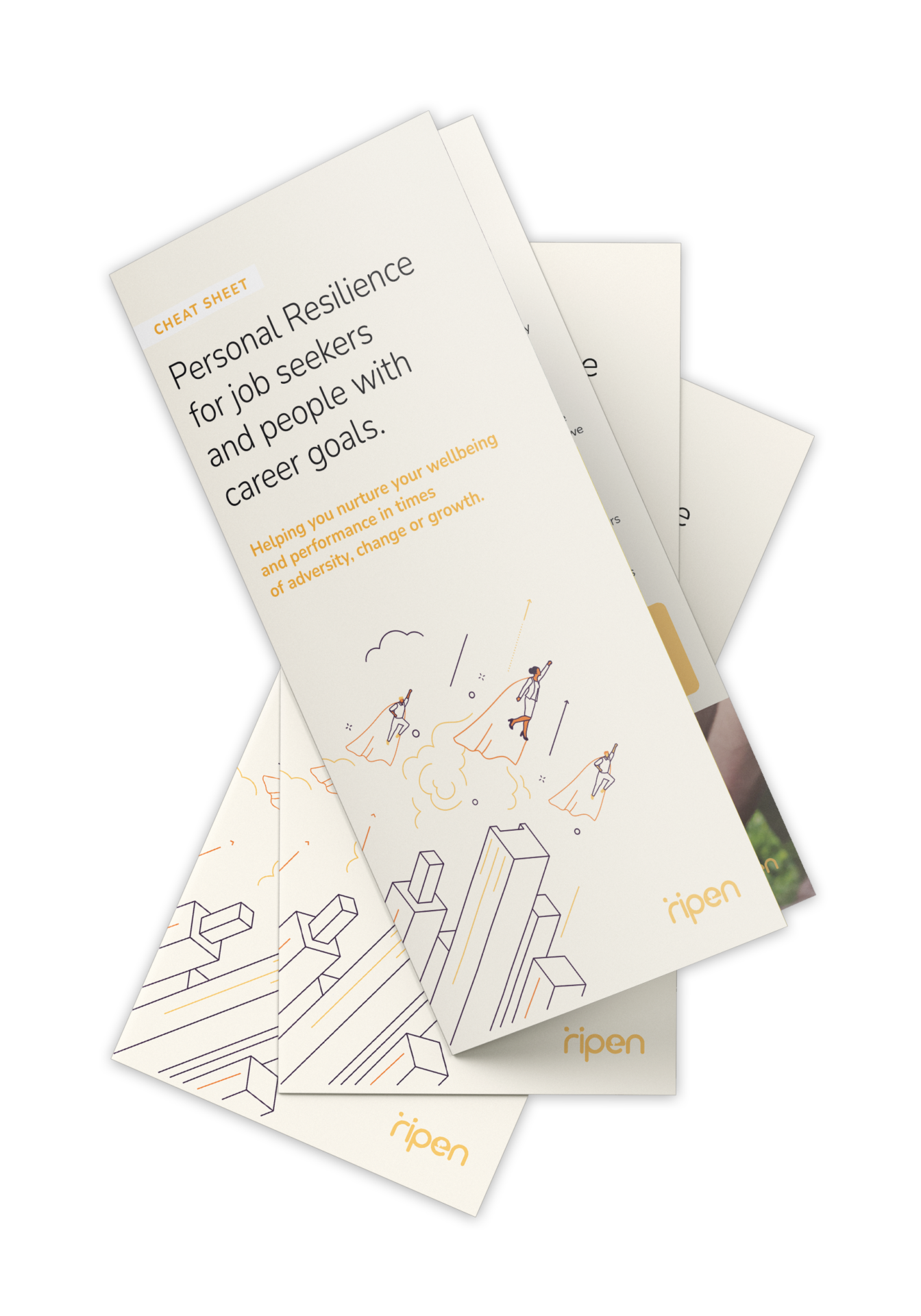Irrespective of how emotionally adept or self-aware you are, there will be times in your life that take you by surprise. By cultivating proven Resilience habits, you’ll be able to go through these trying times more skillfully.
Personal Resilience habit #1: Practice Mindset awareness
Your mindset refers to the set of beliefs that shape how you view yourself and the world. It influences the way you think, feel and behave in a situation.
Our mindset fluctuates from one moment to the next. We can be in a state of optimism and growth in one moment, then something or someone happens and we fall into a state of pessimism and frustration the next moment. Without mindset awareness we are susceptible to outside forces, most of which are outside our control. So being aware of the things that lift our mindset ‘up’ into more positive states of being, or ‘down’ into more limiting states, is a critical Resilience habit. For example, two types of mindset we can be in are: growth and fixed.
People with a fixed mindset believe that their abilities cannot be changed because they are fixed traits. If you have this mindset, you may also believe that your intelligence and talent make you successful without the need for any effort.
Meanwhile, people with a growth mindset believe that their abilities and talents develop with time through persistence and effort. With a growth mindset, you are more likely to persist in the face of failure and embrace hardships or obstacles in life.
We don’t need to practice mindset awareness in every moment, but we do in the moments or situations that matter. Aspiring to be aware of your mindset means you can start to let go of negative beliefs you may have fostered about yourself, about others or about the world. These beliefs could be holding you back. Our mindsets are not meant to be static, and experiencing a large range of mindsets is a perk of being alive. But by becoming aware of the triggers or situations that put you in different mindsets means you can start to manage the triggers.
Personal Resilience habit #2: Take Charge of Thoughts and Emotions
Although emotions play a useful role in your daily life, they can take a toll on your physical and emotional health if they start getting out of control. Several scientific studies indicate that regulating your emotions is associated with optimal wellbeing.
Taking charge of your thoughts and emotions is an important component of individual resilience training. However, don’t confuse it with repressing your emotions. In fact, research has shown that acknowledging your negative emotions can help boost psychological wellbeing in the long run. The more you try to repress these emotions, the bigger pile you’ll have to deal with later. Instead, you should learn to regulate them.
Here’s how to go about this:
- Ask yourself what you’re feeling right now. Are you angry or disappointed? Are you confused or frustrated? Learn to differentiate between your feelings.
- Now that you’ve identified your emotions, ask yourself what made you feel this way. Did a close friend hurt you? Were you rejected?
- Ask yourself if there’s a different explanation for the situation. Did your relationship break off because it was unhealthy for you? If someone hurts you, it may be more a reflection of them than you.
- Decide what you want to do with your thoughts and emotions. Now, this is the tricky part. Instead of letting your emotions consume you, it’s important to regulate them properly. Instead of just going for your first instinct, which is more probably self-destructive or harmful in the long run, look for alternatives.
When you consider alternatives, you learn to reframe your thoughts and modify your initial, predominantly extreme, reactions. This is where the below Resilience habit of mental agility can help.
“We are not troubled by things, but by the opinions which we have of things!” – Epictetus
Personal Resilience habit #3: Apply Mental Agility
Mental agility refers to one’s ability to respond to events flexibly. If you’re mentally agile, you move between ideas quickly and take the best course of action forward in the face of unpredictable or unprecedented life events.
Developing mental agility as a part of your resilience skills training will allow you to enhance your prioritization and strategic thinking. You can be mentally agile by eliminating distractions and focusing on finding as many solutions as possible instead of fixating yourself on the best possible solution.
“Most of the things that happen to us are neither positive or negative. It’s our interpretation that makes them so.”
Personal Resilience habit #4: Maintain Optimal Self-care
Your personal Resilience training journey must include optimal self-care. Resilience is NOT about enduring more and more stress. Resilient people have learned optimal ways to manage their energy and give stress the boot. It largely includes stress reduction, proper nutrition, and exercise. Often, due to our hectic lifestyles and work stress, we struggle to take out me-time during our days. But giving yourself the same level of attention that you give everyone and everything else around you is paramount.
Every day, take out time to do something you enjoy. It can be anything from seeing a friend to watching Netflix, painting, or experimenting with new hobbies. If you want to incorporate relaxation into self-care, try yoga or meditation. You may also like to get outside in nature or go for early morning jogs – whatever rows your boat.
“Remember: The most important time to relax – or take a break – is when you don’t have time for it!”

